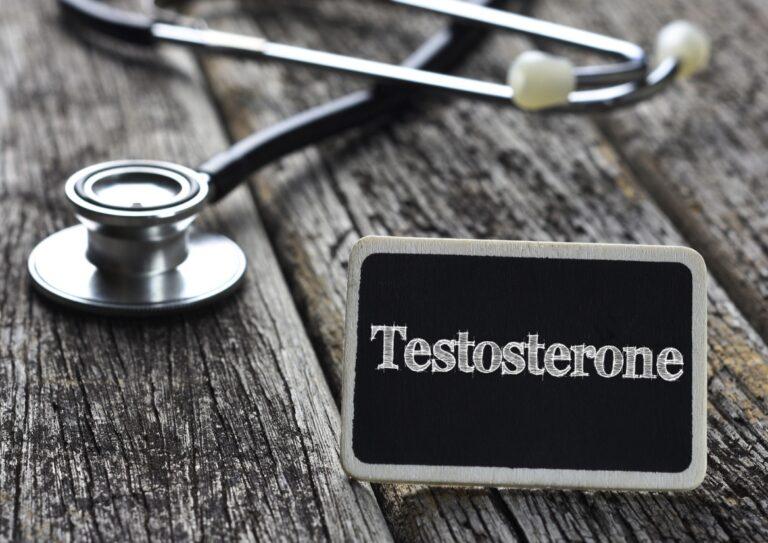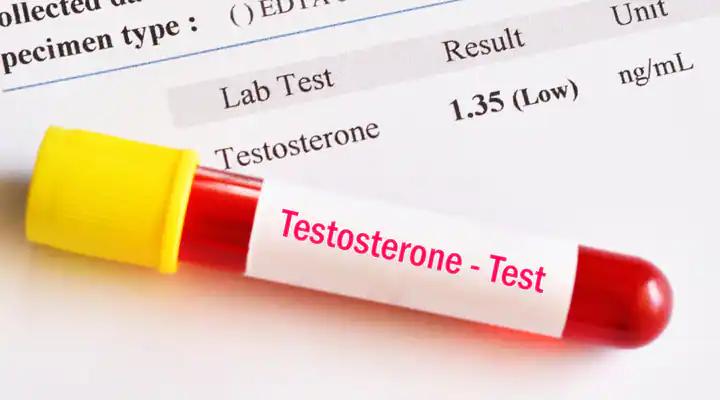
October 15, 2025 (Current Version)
March 28, 2025
As men age, their bodies naturally produce less testosterone, which can lead to various health issues and a decrease in quality of life. Testosterone replacement therapy aims to restore testosterone levels to a healthy range, potentially improving energy, mood, and overall well-being. However, questions often arise about its safety and whether it’s similar to using steroids.
Understanding testosterone
Testosterone, a hormone primarily produced by the gonads (testicles in males and ovaries in females), plays a crucial role in human development and bodily functions. While present in both sexes, testosterone levels are naturally much higher in individuals assigned male at birth.
Role of testosterone in the body
Testosterone has various important functions throughout different life stages. During fetal development, it triggers the formation of male internal and external reproductive organs. In puberty, testosterone is responsible for significant changes in male children, including increased height, body and pubic hair growth, enlargement of the penis and testes, and a rise in libido.
In adulthood, testosterone continues to have an impact on overall health and well-being. It’s essential for sperm production, signals the body to make new red blood cells, and helps maintain strong bones and muscles. Additionally, testosterone enhances libido and contributes to a sense of well-being in both males and females.
Causes of low testosterone
Low testosterone, also known as male hypogonadism, can occur due to various reasons. There are two main types: primary hypogonadism (testicular disorder) and secondary hypogonadism (pituitary/hypothalamus dysfunction).
Primary hypogonadism can result from congenital conditions like undescended testicles or Klinefelter’s syndrome, or acquired conditions such as testicular injury, orchitis, or chemotherapy. Secondary hypogonadism may be caused by conditions affecting the hypothalamus or pituitary gland, including isolated hypogonadotropic hypogonadism or Kallmann syndrome.
Other factors that can lead to low testosterone include ageing, obesity, poorly managed Type 2 diabetes, obstructive sleep apnea, and chronic medical conditions like kidney dysfunction or liver cirrhosis.
Symptoms of low testosterone
The symptoms of low testosterone can vary depending on age and the severity of the condition. In adults, common signs include:
- Reduced sex drive/low libido
- Erectile dysfunction
- Loss of body hair
- Shrinking testicles
- Hot flashes
- Low energy levels
- Low or zero sperm count
Other symptoms may include depressed mood, difficulties with concentration and memory, increased body fat, and decreased muscle strength and mass. In children, low testosterone before or during puberty can result in slowed growth, reduced development of pubic hair, and less voice deepening.
It’s important to note that low testosterone doesn’t always present noticeable symptoms, and some individuals only discover it through routine blood work during physical examinations.
Testosterone replacement therapy
Testosterone treatment aims to restore levels of testosterone to a physiological range in men with consistently low levels and associated symptoms of androgen deficiency. This treatment has various methods of administration, dosage considerations, and monitoring requirements.
Methods of administration
Testosterone supplementation can be administered through several routes, including transdermal, intramuscular (IM), and other less common methods. Transdermal options include gels and patches. Gels like Testogel, Tostran, and Testavan are applied daily to clean, dry skin on the upper arms, shoulders, or abdomen. Patches, such as Androderm, are applied nightly and provide a non-invasive option with easy application.
Intramuscular injections are another common method. Testosterone cypionate and testosterone enanthate are typically injected every one to two weeks. Testosterone undecanoate (Nebido) is a long-acting formulation injected every 10 to 14 weeks.
Dosage and frequency
Dosage and frequency vary depending on the chosen method of administration. For gels, the starting dose is usually 40-60 mg of testosterone applied daily. Adjustments can be made based on serum testosterone levels and clinical response.
Testosterone injections, typical starting doses range from 75-200 mg every one to two weeks for shorter-acting formulations. Nebido injections start with 1000 mg, followed by another dose at 6 weeks, then every 10-14 weeks after that.
Regular blood tests and monitoring
One of the side effects of TRT is changes in blood composition. Regular monitoring is crucial for patients on testosterone hormone therapy. Healthcare providers typically recommend the following:
- Before starting TRT, patients should have their hematocrit levels checked
- Blood tests should be conducted at 3, 6, and 12 months after initiating treatment
- Annual blood tests are recommended for patients on long-term TRT
These tests allow healthcare providers to monitor changes in blood composition and adjust treatment as necessary. If a patient’s hematocrit rises above 54%, the American guidelines advise stopping testosterone therapy.
Benign prostatic hyperplasia (BPH)
Benign prostatic hyperplasia is a common condition in older men, and has also been a concern with TRT. The effects of testosterone on BPH have been studied extensively.
TRT can cause small increases in PSA levels, but current evidence suggests that it does not significantly increase the risk of prostate cancer or worsen BPH symptoms. However, regular monitoring of PSA levels and prostate health remains crucial for men undergoing TRT. Healthcare providers should discuss the potential risks and benefits of TRT with patients and make treatment decisions based on individual circumstances and risk factors.
Is TRT the same as taking steroids?
Defining anabolic steroids
Anabolic steroids are prescription-only medicines that copy the effects of testosterone. They have limited medical uses and are sometimes taken without medical advice to increase muscle mass and improve athletic performance. These drugs can be taken orally as tablets or capsules, injected into muscles, or applied as creams or gels. Anabolic steroids are classified as performance and image-enhancing drugs (PIEDs) and are often misused by individuals seeking to build muscle, reduce fat, and enhance physical appearance.
Comparing TRT and steroid use
Testosterone Replacement Therapy (TRT) and anabolic steroid abuse are fundamentally different in their goals, application, and effects. TRT is a legitimate medical treatment prescribed by healthcare professionals to address testosterone deficiency in men. It aims to restore hormone levels to normal testosterone levels, reducing symptoms associated with hypogonadism. The dosages used in TRT are carefully monitored and adjusted to maintain optimal testosterone levels.
In contrast, steroid abuse involves taking much higher doses of testosterone or other anabolic steroids, often 10 to 100 times the amount prescribed for medical purposes. This practice is typically associated with bodybuilders, athletes, and individuals seeking rapid muscle growth or performance enhancement. Unlike TRT, steroid abuse is not supervised by medical professionals and can lead to severe health risks.
Conclusion
Testosterone replacement therapy has a significant impact on the lives of men dealing with low testosterone levels. This medical treatment aims to restore hormone balance, potentially improving energy, mood, and overall well-being. Unlike anabolic steroid abuse, TRT is a supervised, legal, and ethical approach to address a genuine health concern, with carefully monitored dosages and regular check-ups to ensure safety and effectiveness.
Sources
- Testosterone therapy: Potential benefits and risks as you age – Mayo Clinic
- Risks of testosterone replacement therapy in men – PMC
- Testosterone replacement therapy : (TRT) :: North Cumbria Integrated Care
- Androgen Replacement – StatPearls – NCBI Bookshelf
Medical Disclaimer
NowPatient has taken all reasonable steps to ensure that all material is factually accurate, complete, and current. However, the knowledge and experience of a qualified healthcare professional should always be sought after instead of using the information on this page. Before taking any drug, you should always speak to your doctor or another qualified healthcare provider.
The information provided here about medications is subject to change and is not meant to include all uses, precautions, warnings, directions, drug interactions, allergic reactions, or negative effects. The absence of warnings or other information for a particular medication does not imply that the medication or medication combination is appropriate for all patients or for all possible purposes.







